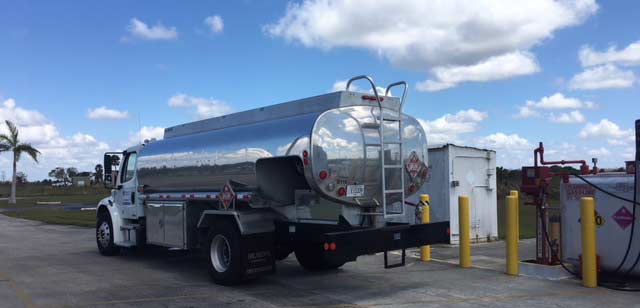You need to know a few critical things about heating oil delivery. Whether you want a will-call delivery or an automatic one, there are some things to know. Firstly, you must ensure your house number is displayed. If not, your delivery might be delayed. Secondly, you must ensure your delivery company can get your address and make necessary deliveries.

Will-Call delivery
If you’re tired of manually ordering your heating oil, consider switching to a will-call service. The supplier makes the delivery at a convenient time, often unknown to you. With will-call delivery, you choose when you want the oil delivered, and you pay only for the price of the oil. This oil delivery East Brunswick, NJ, is convenient for many people.
This method’s customers should keep an eye on their heating oil tank gauge. Running out of oil during the winter can be extremely expensive, so always be prepared and pay a small additional fee to avoid running out. While automatic deliveries may be convenient, they also require a person to remember to request a delivery. Install a Smart Oil Gauge in your tank to automatically check your oil level and remind you when to order.
Automatic delivery
While you may be tempted to fill up your tank every time it runs low, automatic heating oil delivery can be beneficial. It allows you to schedule your fuel delivery, so your tank is always filled at the right time. When you choose this option, you can save money and time while staying warm. In addition, automatic delivery has many benefits, including the peace of mind of knowing you’ll never run out of fuel.
A price protection plan or payment program will allow you to lock in a fixed price for the fuel. You’ll know exactly how much oil to order, so the price you pay is set before the program even starts. Some of these programs have deadlines that you must meet, but you can always sign up for automatic delivery. Most programs also offer an enrollment period. You’ll be surprised by how convenient these options can be. But before enrolling, check whether automatic delivery is a good option.
Refining
Refining heating oil delivery takes place in two separate phases. The first stage involves the extraction of crude oil, which is then transported to storage terminals. Then it is refined further into different types of fuel. These products are diesel, gasoline, or No. 2 home heating oil. Once refined, the products travel to distribution terminals, which provide temporary storage and ultimately deliver them to the consumer. There are a variety of storage facilities, including rail terminals and refineries located in several states.
While the cost of refined products like gasoline and distillates has gone down over the past few years, heating oil prices have continued to rise, even as the price of other petroleum products has dropped. As a result, refineries can increase heating oil production during winter but may be limited by a lack of demand for other petroleum products. To meet the demand for heating oil, some refiners store the oil and deliver it to their customers during the winter months.
Regulations
Regulators are taking steps to protect Vermont homeowners from erroneous heating oil deliveries. New laws require home heating oil delivery companies to inspect above-ground storage tanks by 2020. Despite this, many tanks are still located in basements and must be thoroughly examined. In addition, fuel companies are racing to make repairs before winter arrives to reduce the risk of such mishaps. These regulations are designed to protect consumers from a potentially costly environmental incidents.
Under the new regulations, heat oil dealers cannot impose surcharges on customers for less than a certain number of gallons. Additionally, they cannot set a minimum delivery for heating fuel. The rules may change in the future, but they’re the same for now. In New York, dealers must register under section 16a-22c. Propane, number two distillate, and home heating oil delivery trucks must register. The energy and environmental protection commissioner may request information regarding petroleum product sales. Heating oil dealers are also required to report any change in current business practices to the energy and environmental protection commission. The regulations also require heating oil sellers to register with the commission if they change their practices.
Safety
If you’re expecting a heating oil delivery, clear a path to your tank. This is important for two reasons: First, you’ll want to remove snow and ice from the path, and second, the drivers will need to find the fill pipe and deliver it safely to your home. In addition, the hose carrying the heating oil is about 150 pounds, so make sure to clear the area around it. Finally, remove it from snow and ice if you have a gate.
Another reason why heating oil is so dangerous is the presence of fill pipes. Sometimes, homeowners have converted to a different heat source and removed their oil tanks. Then, the neighbor at the same address may order heating oil and misunderstand the order and pump a substantial amount of oil into the basement. This could be catastrophic for the neighbor’s house. Therefore, checking for corroded fill pipes is essential before hiring a heating oil delivery service.
